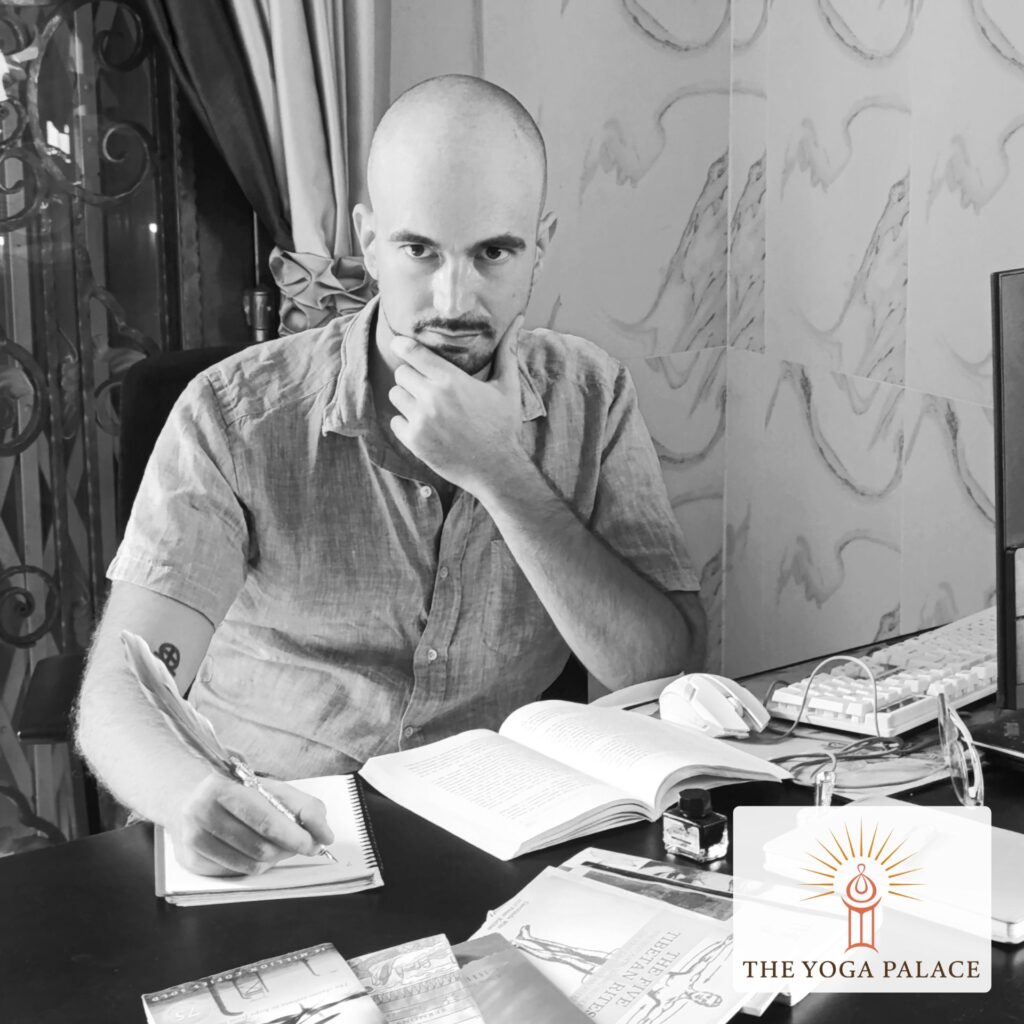I once had a job writing articles about meditation, yoga, and other spiritual practices. Back then, it was easy for me to write about meditation, even though I didn’t meditate much myself. I’d read books about meditation, listen to talks, and write articles based on what other people said about meditation. What I would write would depend very much on who I was studying: Buddhist monks, esoteric mystics, Christian contemplatives, secular psychologists, and so on. It was easy to churn out an article explaining why meditation is important in terms of whatever worldview I had been reading about.
The problem with writing about meditation started when I opened the Yoga Palace and started to meditate regularly. Since I was guiding meditation sessions, I thought I’d better actually do the practice! Once I had a regular meditation practice, every time I started to write about meditation, I felt like I was writing a load of nonsense. One of the reasons for this is that in the meditative state, no ideology or dogma exists—there are no words. Or, more realistically, the only words are the stray thoughts in my mind which I am noticing sooner or later, then returning to the object of meditation. The place where we are trying to get to, of pure awareness, defies description because, by describing it, we are replacing it with a bunch of words. What is there to say about silence? Saying anything about it seems like a rude interruption.
Another reason it was difficult to write about was that I became increasingly disillusioned with the various dogmas that people attach to meditation. I was recently reading a book by an American Buddhist monk promoting a certain meditation technique (a loving-kindness method which we now use at the Yoga Palace). It started well, explaining the practice and why many find it preferable to other types of meditation, but by the time I was two-thirds of the way through the book, it was promising me incarnation in a godly realm if I did the exact technique invented by the author’s guru. I once attended a free meditation course run by a Hindu organization. The first three sessions were all about a meditation technique, but the fourth saw a dramatic change of pace with us being told that this was the ONLY way to reunite with the divine, and that we were part of a chosen few who would make it, and that it was our moral duty to bring others into the fold.
I started to feel that meditation was being used as a kind of brainwashing technique, where you empty your mind of thoughts, then fill it with some kind of ideology. So then I began to worry that, if I wrote about meditation, I would be complicit in this same scam.
I am not suggesting that the people of faith who espouse the virtues of mental silence are disingenuous. There are many writers who beautifully encourage us to cultivate inner calm: The Catholic monk Thomas Merton said, “The greatest need of our time is to clean out the enormous mass of mental and emotional rubbish that clutters our minds.” The Dalai Lama claims, “If every 8-year-old in the world is taught meditation, we will eliminate violence from the world within one generation.” These great writers encourage us to get hold of our minds and inspire us to try for ourselves. It’s just that the really juicy stuff cannot be put into words.
Here I realize the contradiction: I’m quoting people writing about what I just said is impossible to write about. But maybe that’s the point. These teachers aren’t trying to describe the experience—they’re just pointing you toward it. As Thich Nhat Hanh says, “For things to reveal themselves to us, we need to be ready to abandon our views about them.” The greatest teachers know when to stop talking. A real meditation teacher will guide you to do the practice, not lecture you on what it means. As Lao Tzu famously said, “Those who speak do not know; those who know do not speak.”
To get around my problem of writing about meditation, I am presently writing about writing about meditation, and perhaps this is taking us even further away from that place of silence!ing about meditation, then meditate. There are benefits to the practice for individuals and society at large, but in the depths of the practice itself, there is only the silence of eternity and nothing can really be said about that.
So, because of all this, when I try to write about meditation, my mind goes blank. But I’m going to take that as a good thing: if only it were so easy to silence the mind during the practice itself!
This realization has fundamentally changed how I approach teaching meditation at the Yoga Palace. Rather than filling our sessions with elaborate explanations or philosophical frameworks, I find myself saying less and guiding more. I’ve learned to trust that the practice itself will teach what words cannot.

